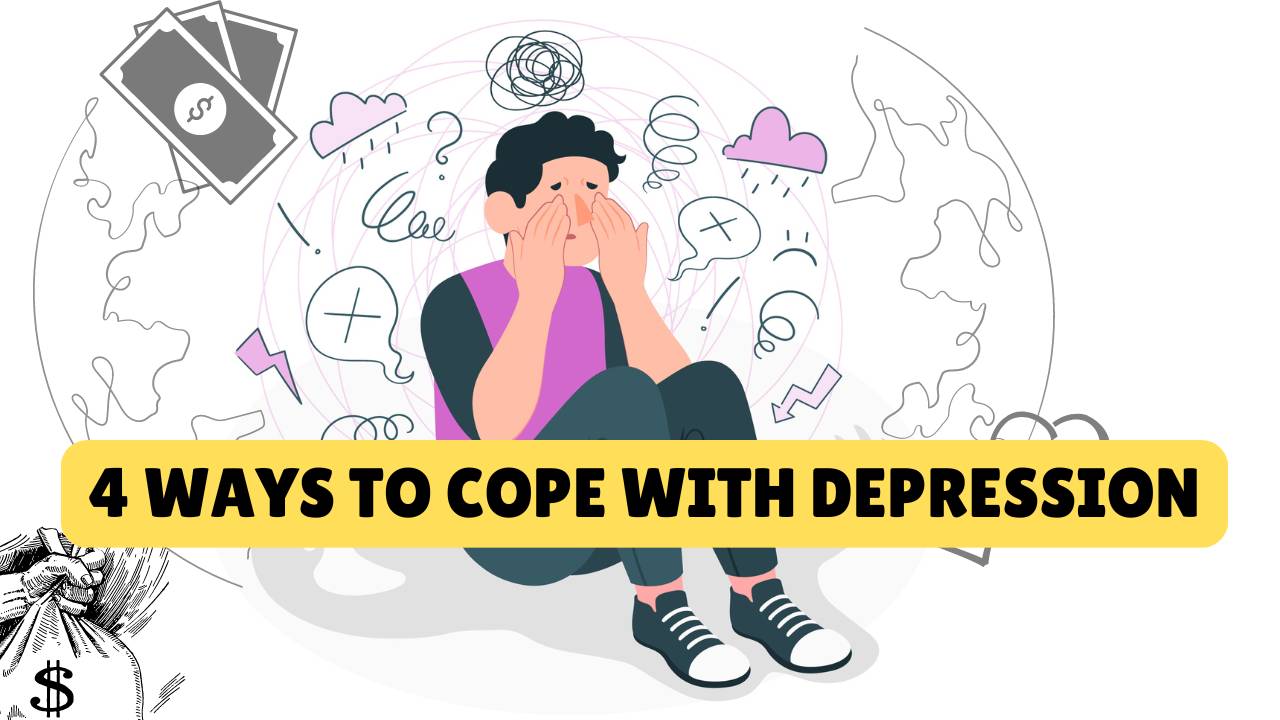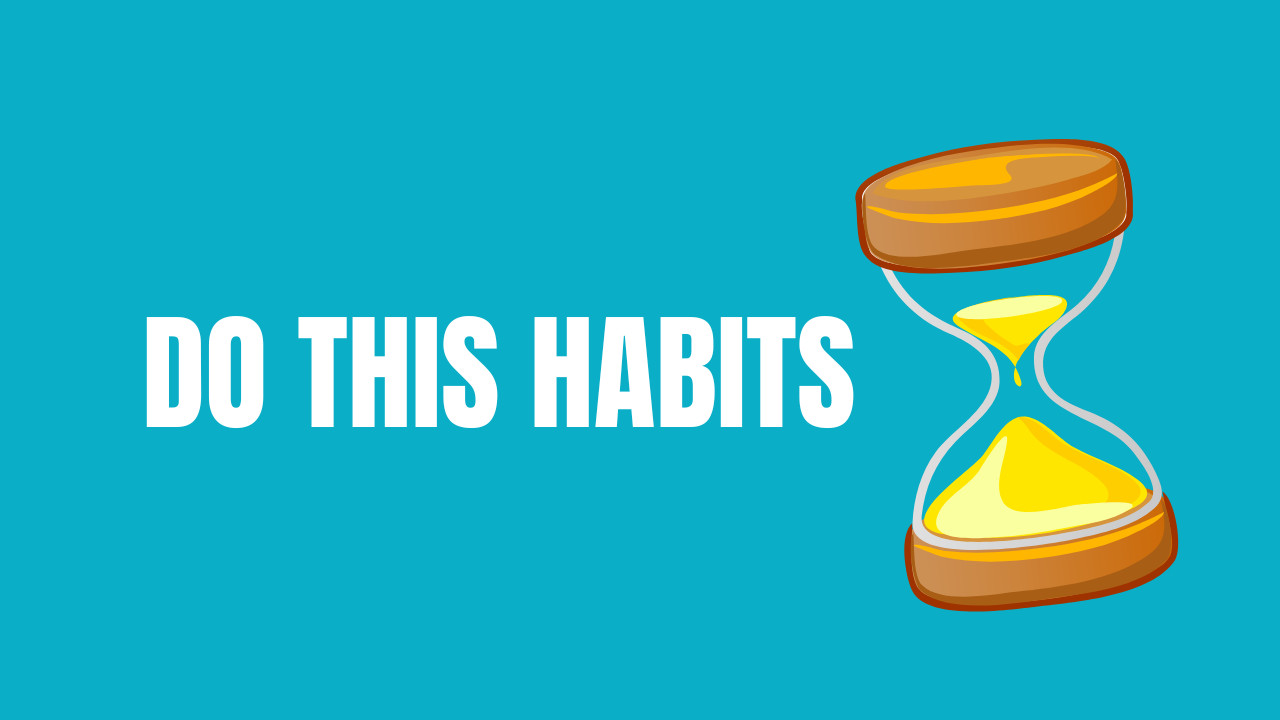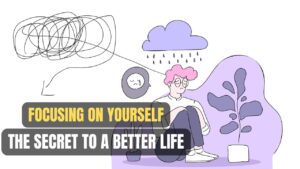4 Ways to Cope With Depression
4 Ways to Cope With Depression – Struggling with depression? Learn 4 practical ways to manage symptoms and find relief. Start your journey towards mental wellness today.

You snooze the alarm by rolling over as soon as it goes off. You know you have to get ready for work, but the thought of getting out of bed feels overwhelming. You’ve got a big presentation today, and plans with friends later, but instead of feeling excited, you feel hopeless and exhausted.
Lately, it’s been hard to enjoy life. Your self-worth is low, and pursuing your goals seems pointless. These feelings of hopelessness, low self-esteem, and a lack of interest in life are all signs of clinical depression. According to the National Institute of Mental Health (NIMH), if you feel this way, you’re not alone.
We’re here to support you, give you hope, and help you find ways to navigate through this challenging time. In today’s post, we’ll share four tips recommended by psychologists and backed by research to help you cope with depression. We’ll also introduce you to some concepts you might not have heard of, like the Behavioral Theory of Depression. Keep reading to discover new strategies you can add to your mental health toolbox.
Table of Contents
1. Build a Sense of Mastery
According to the Anxiety and Depression Association of America (ADAA), setting small, achievable goals and celebrating even the little ones can help combat depression. How can you implement this in your daily life?
Imagine you have a school assignment or a work project to complete. Tackling the whole thing at once might feel daunting. Instead of setting one big goal to finish the entire project, break it down into smaller tasks. Step one might be writing the introduction; step two could be conducting background research, and so on. Successfully completing each of these steps will help you build momentum and increase your confidence in achieving the larger goal.
Exercise is another effective way to build a sense of mastery. Dr. Alan Valentine, Chair of the Department of Psychiatry at the University of Texas MD Anderson Cancer Center, recommends exercise to his patients with depression. He notes that exercise helps by providing a sense of accomplishment, whether it’s completing a workout, mastering a new hobby, or finishing a project. Focusing on these small victories can help you cope with depression.
2. Reduce Rumination
According to an article published in Frontiers in Human Neuroscience, people with depression often ruminate on negative experiences, which can worsen their symptoms. Constant rumination can lead to a downward spiral, especially if you’re already feeling low. Do you often catch yourself thinking the same things again and over?
Psychologist Alicia Clark suggests using gratitude to stop negative rumination and shift your mindset. Let’s try Dr. Clark’s gratitude exercise together. Think of three things you’re grateful for right now, no matter how small they may seem. It could be a friend, a positive interaction, or something that brought you joy today. Pay attention to your feelings about these items. The next time you catch yourself ruminating, pause and write down three things you’re grateful for.
3. Behavioral Theory of Depression
Megan Rice, a therapist at Talkspace, explains that one way to cope with depression is to incorporate rewards into your daily routine. This technique is rooted in the Behavioral Theory of Depression. According to a Journal of Medical Internet Research article, engaging in activities that are meaningful and rewarding, like spending time with loved ones or pursuing a new hobby, is a crucial part of treating depression.
Having a daily schedule that includes mental health strategies can help you stay active, give you something to look forward to, and prevent you from falling into a rut. Think about the activities that bring you joy—how can you incorporate them into your daily life? Share your ideas in the comments below.
4. Challenge Cognitive Distortions
Cognitive distortions are negative beliefs that aren’t grounded in reality. For instance, if you’re feeling down, you might think, “I’ll never get through this” or “I’m always going to feel sad.” These are examples of overgeneralization, a common cognitive distortion. A 2018 study by Blake and colleagues found that people with depression experience more cognitive distortions than those without depression.
According to Psych Central, one effective way to challenge cognitive distortions is to create a thought log. Start by writing down the situation you’re in, followed by your thoughts and feelings. Next, ask yourself if there’s any evidence that these thoughts might not be true. Finally, write down a more positive and realistic alternative thought. This exercise can help you recognize the impact of your thoughts and reframe them in a more constructive way.
We hope these tips help you navigate through difficult emotions and find healthy coping mechanisms that work for you. Now, readers, we would want to hear from you. How do you deal with depression? Do you have any helpful routines or exercises? Share your thoughts in the comments below, and take a look at the suggestions from others in the community. Remember, your emotions are valid, and you are loved and welcomed here.
Thanks so much for reading, and we’ll see you in the next post.
If you want more Luxury Lifestyle blogs then you can check our website. (Click)
If you want more content like this then click here (Click)













Post Comment